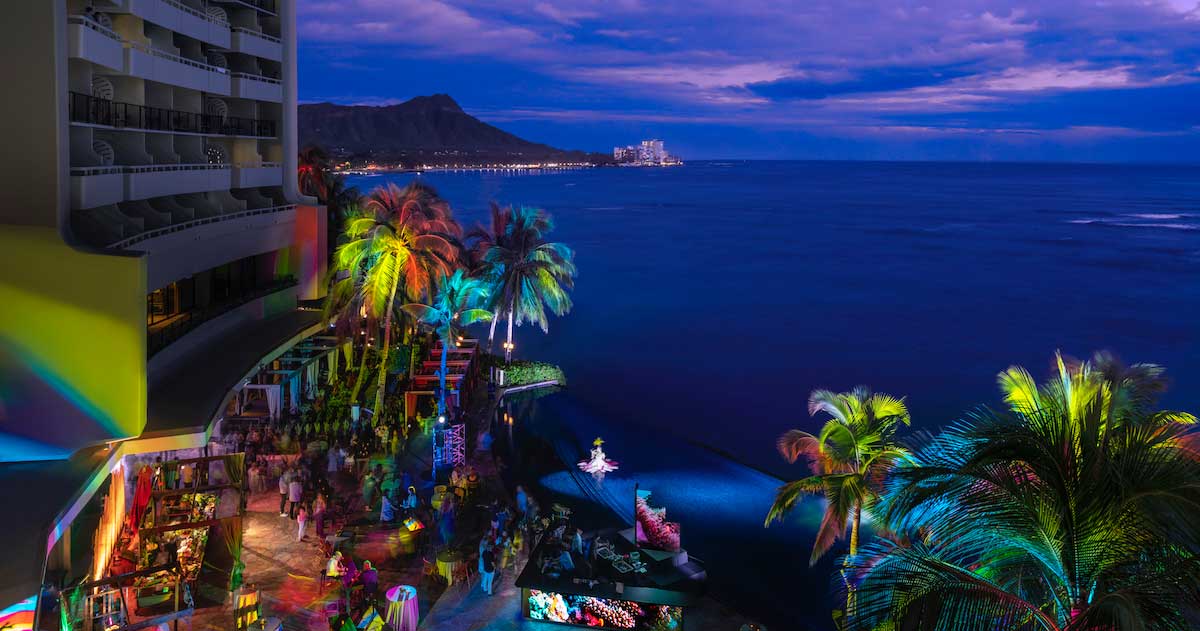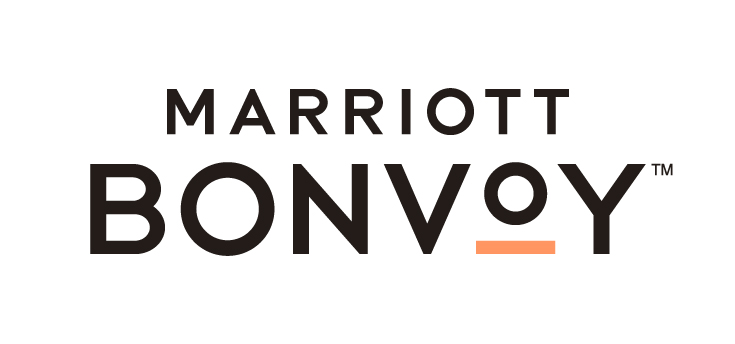“It is entirely possible to plan and execute a luxurious event that is packed with content and sustainable, with a net-zero or event-positive carbon impact. Leave with great memories, not a great carbon footprint.”
That was the most important takeaway for those who attended THE EXCHANGE, Travel Partners Conference (TPC), held March 21-24, 2023, at Marriott International properties in Waikiki, according to Monica Meng-Ju Wu, CMP, SEPC. Wu, director of event planning for The Waikiki Collection—the Sheraton Waikiki; The Royal Hawaiian, a Luxury Collection Resort, Waikiki; the Moana Surfrider, A Westin Resort & Spa, Waikiki Beach; and the Sheraton Princess Kaiulani—says the 400 TPC attendees were top intermediary customers for Marriott’s Global Sales Organization who specialize in sourcing and planning events for corporations and associations.
“It was the perfect audience to demonstrate how to execute sustainable events,” she says.
This sustainable effort was led by Marriott’s B2B Events & Programs Team in cooperation with the host hotels; Visit Hawaii; MC&A Destination Management; and a variety of local vendor partners. During the weekly planning meetings, time is always dedicated for sustainability specific initiatives for not only TPC, but all Marriott events, supporting the long-term goal of Net Zero operations.
Sustainability coverage brought to you by
In addition to featuring educational sessions about sustainability and inclusivity (more on that later), TPC (themed “Step Beyond”) was essentially a living embodiment of event sustainability in action, including a focus on local sourcing, which is already key to the ongoing operations of the Waikiki Collection. To alleviate the need to ship materials to the conference, an app was created and the schedule, notifications and signage were handled digitally.
“At all of our major food and beverage events, a digital map was displayed showing the source of the products, and the farmers or brewers were invited to be onsite interacting with customers,” Wu says. “The traditional lanyard was replaced by shell leis that were made by local artisans, which reinforced the local Hawaii theme. Traditional swag amenities and gifts that would normally be shipped were replaced by local vendors with a touch of Aloha. The guests ended up loving them so much more!”
One of the biggest obstacles to creating/executing truly sustainable events? Waste. This was managed from the very beginning of TPC by asking about preferences and reviewing past experiences and consumption reports to determine the right amount of food and beverages to stock.

“One great success was the slice-on-demand fruit station,” Wu says. “Attendees went to a fruit station and asked for what they wanted—pineapple, papaya, mango, apples, whatever—and it was cut on demand. This offered a premium experience and reduced food waste.”
But knowing that some event waste is inevitable, it is also critical to manage it properly. Wu says event waste at Waikiki Collection events such as TPC is handled via a three-step process.
- Extra event food is safely transferred and stored for the next employee cafeteria meal period. The executive chef personally examines the food and plans the food service at three of the large employee cafeterias.
- Food scraps from the cafeteria are separated and collected by a local pig farm every other day.
- Green and brown waste are collected for the complex’s landscaping team to compost and use at the onsite nursery/herb garden. (TPC’s compost bin was later donated to a local charter school for its garden.)
The big picture
In pre-event communications, attendees were asked to bring their own water bottles to TPC as part of an effort to promote wellness, reduce plastic waste from bottled water and contribute to a greater cause.
“Marriott’s TPC partnered with Fill it Forward, an organization designed to match sustainable individual practices with large-scale sustainability efforts,” Wu says. “Attendees received a sticker with a QR code to be placed on their bottles. Every time they refilled, they could scan the QR code and Fill it Forward would make a donation to an environmentally focused Oahu organization. The practice extended beyond the event—when people refill their bottles at home and scan the code, well after the event has ended, the local nonprofit will continue to benefit. At the end of the event, $5,000 was raised and donated to Waiwai Ola Waterkeepers Hawaii foundation.”

Educational opportunities during TPC included a breakout session (“Your Event, Your Contribution to Nature”) hosted by Denise Naguib, vice president of sustainability and supplier diversity global operations for Marriott International (read Naguib’s thoughts about the latest sustainability trends), and a general Diversity, Equity & Inclusion (DEI) Panel featuring Marriott leaders Apoorva Gandhi, senior vice president of multicultural affairs, social impact and business councils, and Julius Robinson, chief sales and marketing officer, U.S. and Canada. Guest speakers and co-founders of Textured Waves Danielle Elizabeth Black Lyons and Chelsea Kungkagam Woody discussed inclusive opportunities for female surfers of color.
TPC attendees were presented with plenty of opportunities to stay active, from yoga, canoeing and surfing to a Waikiki run and a cardio bootcamp. And attendees learned about culture, history and the meaning of Aloha though a visit to the taro field at Kualoa Ranch—TPC’s Serve 360 activity. Attendees worked with Local farmers deploying 400-plus-year-old farming techniques to plant and harvest taro. The harvested taro was then used in culinary dishes at the closing dinner celebration.
Step Beyond was ultimately much more than a single case study in event sustainability.

“Marriott properties are on track to be carbon-neutral by 2050, but as those efforts are underway, carbon consciousness is the name of the game,” Wu says. “Step Beyond served as the unveiling of Marriott’s new carbon calculator, which will be beta-tested in 52 hotels around the world and will inform Marriott’s Serve 360 sustainability goals. Carbon offset donations for the event will go to South Pole, a strategy organization working toward emission reduction.”
Wu believes the Waikiki Collection, with its exceptional portfolio of oceanfront outdoor venues and island location, was the ideal candidate to demonstrate sustainable events via TPC.
“Our ownership, Kyoya, is the biggest supporter of these efforts and their ESG goals are closely aligned with Marriott’s serve 360 goals,” she says. “I felt privileged to be part of the team that’s leading the industry forward.”




